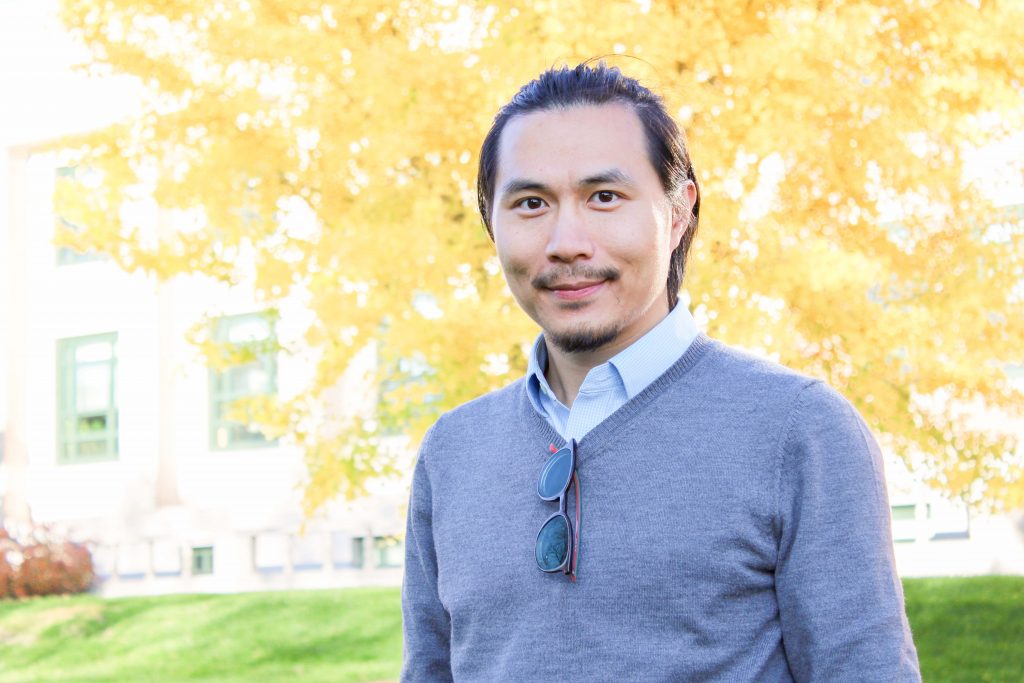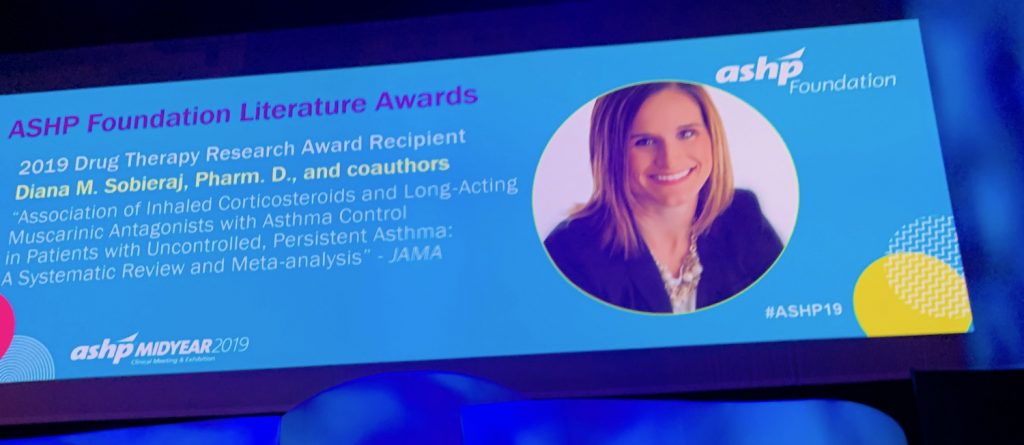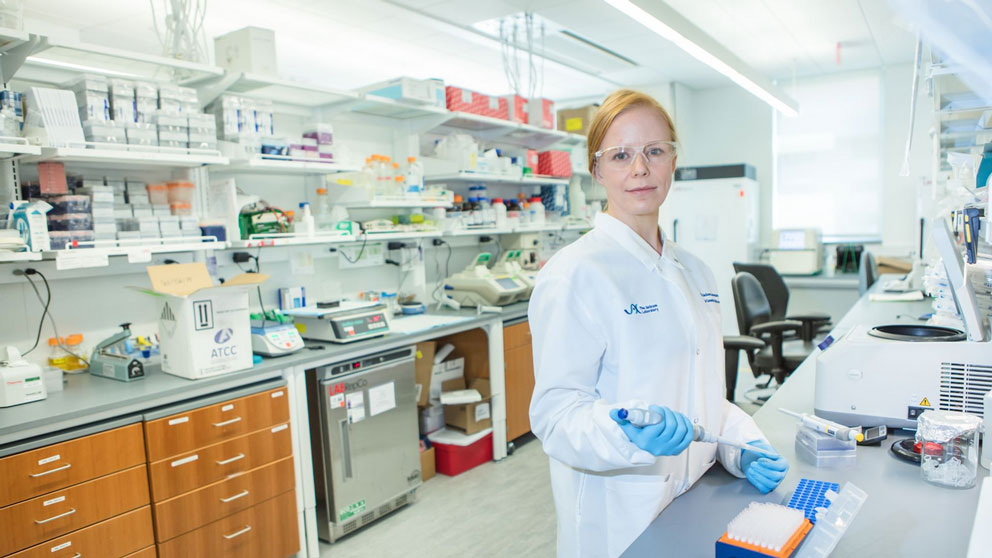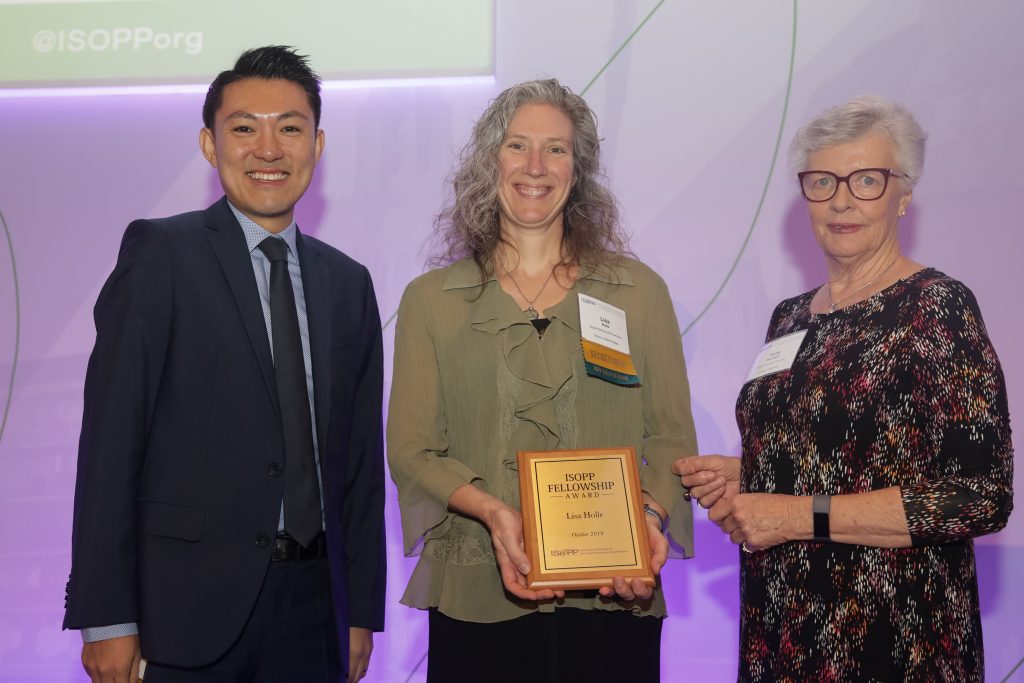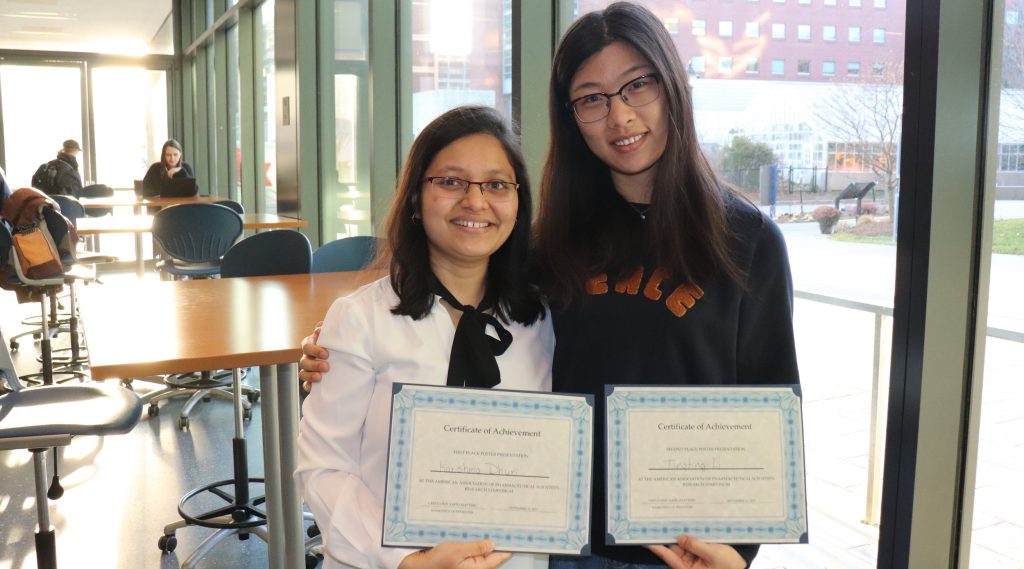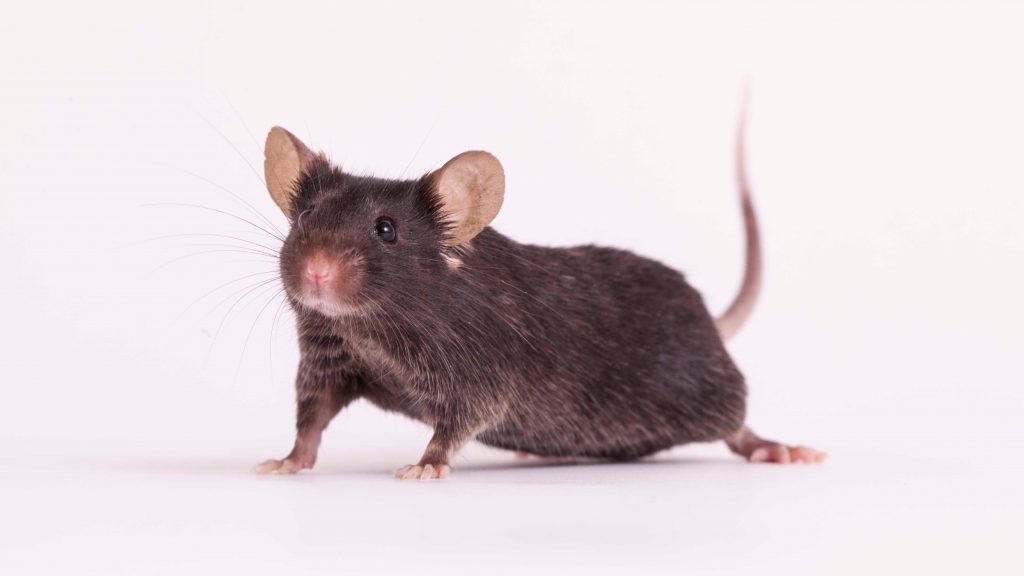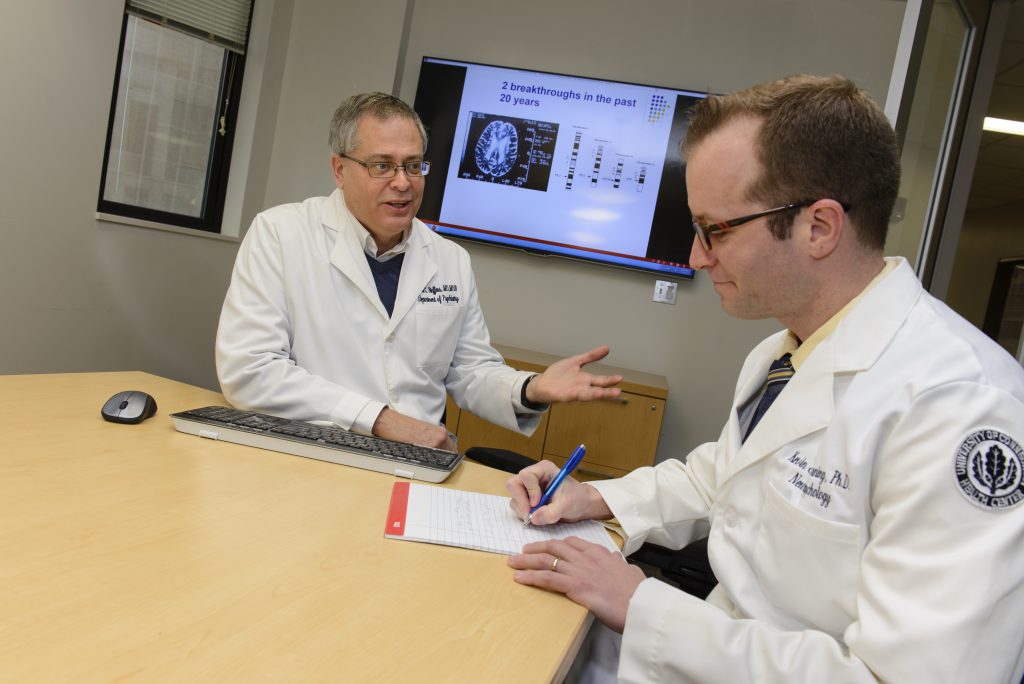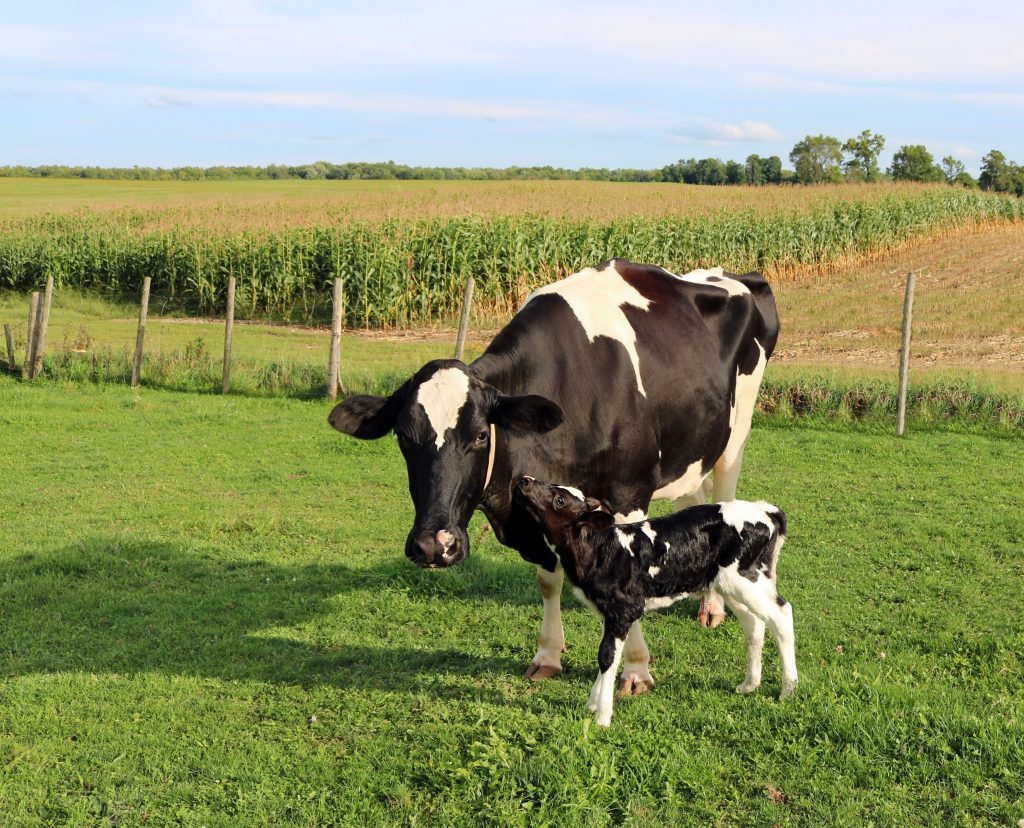Research & Discovery
Micro-RNAs Keep Stem Cells From Growing Up Too Fast
UConn Health researchers believe they've solved a mystery that's long puzzled observers: what are so-called micro-RNAs for?
December 12, 2019 | Kim Krieger - UConn Communications
Meet the Researcher: Zhe Zhu, Natural Resources and the Environment
UConn Professor Zhe Zhu is an expert on what we can learn about what's happening on earth from images produced by satellites in outer space.
December 11, 2019 | Anna Zarra Aldrich '20 (CLAS), Office of the Vice President for Research
Diana Sobieraj Accepts Coveted Award at ASHP Meeting
Lead author Diana M. Sobieraj accepted the Drug Therapy Research Award for her work on treating asthma.
December 10, 2019 | Sheila Foran - School of Pharmacy
How Do Repeats Influence Genome Biology?
Christine Beck, a researcher at UConn Health and The Jackson Laboratory for Genomic Medicine, will receive approximately $2M from the National Institute of General Medical Sciences to reveal the impact of repeat-mediated genetic events.
December 10, 2019 | Anna Zarra Aldrich '20 (CLAS), Office of the Vice President for Research
UConn Study: Wing Genes Responsible for Tiny Treehopper’s Extraordinary Helmet
A study by UConn researchers sheds new light on how the distinctive "helmets" of treehopper insects evolved.
December 9, 2019 | Jaclyn Severance
Lisa Holle Named ISOPP Fellow
Associate Clinical Professor Lisa Holle is recognized for professional excellence.
December 6, 2019 | Sheila Foran - School of Pharmacy
Graduate Students Dhuri and Li Take Top Honors in local AAPS Poster Competition
UConn Ph.D. students take top honors in poster competition.
December 6, 2019 | Sheila Foran - School of Pharmacy
Mighty Mice Head to Space on Important Health Mission
Some tiny but mighty astronauts are headed into space as part of a research project into muscle and bone loss being undertaken by UConn Health, The Jackson Laboratory for Genomic Medicine (JAX), and Connecticut Children's.
December 5, 2019 | Lauren Woods - UConn School of Medicine
Apathy and Reward in Alzheimer’s Disease
A team of researchers from UConn's School of Medicine received a $451,000, two-year award from the National Institute of Mental Health to study apathy, the most common neuropsychiatric symptom in patients with Alzheimer’s disease.
December 5, 2019 | Samantha Korittke '21 (CLAS), Office of the Vice President for Research
UConn and Yale Researchers Draw an Evolutionary Connection Between Pregnancy and Cancer Metastasis
Pregnancy might hold the key to understanding how cancer metastasizes in various mammals - including humans, according to UConn and Yale researchers.
December 5, 2019 | Courtney Chandler - UConn Health

